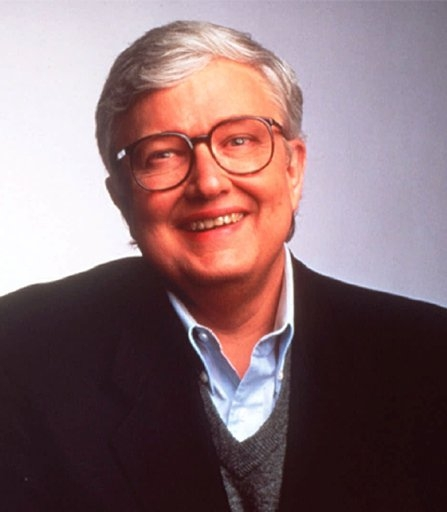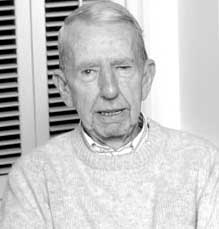

| Home | Daniel Keyes | "Flowers for Algernon" (the Short Story) |
Flowers for Algernon (the Novel) |
Charly (the film) |
Resources |
|---|

Strangely enough, Ralph Nelson's "Charly" succeeds as a movie for reasons having little to do with the plot. As the story of a personality in crisis, it works. We care about Charly. But the whole scientific hocus-pocus, which causes his crisis, is irrelevant and weakens the movie by distracting us.
The story idea is a simple one, which Daniel Keyes was able to spin out into a successful novel ("Flowers for Algernon") by keeping his focus on Charly's, developing character. We start with a good-natured mentally retarded man of perhaps 30. He can do simple tasks and write a few words.
He cheerfully inhabits a world that seems frightening to us. His barren room contains a blackboard with the next day's tasks on it; he works as a janitor at a bakery where his "friends" torment him. With heartbreaking persistence, he attends night classes and takes guided tours of the city, but the things he learns all slip away and he has to keep starting again.
Then Charly undergoes a brain operation (which remains unconvincing despite a surplus of fishy explanations). His IQ begins to increase rapidly, and he has to do 20 years of maturing in a few months. His tutor along the way is a young teacher, and not surprisingly he falls in love with her.
The relationship between Charly (Cliff Robertson) and the girl (Claire Bloom) is handled delicately and well. She cares for him, but inadequately understands the problems he's facing. These become more serious when he passes normal IQ and moves into the genius category; his emotional development falls behind. It is this story, involving a personal crisis, which makes "Charly" a warm and rewarding film.
Unfortunately, there's a supplementary plot involving the scientist who operated on Charly, the scientist's difficult wife and a plan to put Charly on show at an international convention. This takes place just as Charly and his doctors discover that the operation will not have a permanent effect; eventually Charly will slip back to subnormal intelligence again. There's a rather awkwardly handled confrontation between Charly and the scientists, and then one of those conventional Science Races Against Time sequences.
What really involves us is Charly and his bittersweet love affair (which, if you think about it, bears comparison to the dilemma of King Kong). There is also a lesson to be learned from the theme of the creator and his innocent, doomed creation (see "Frankenstein," Genesis, etc.). But what is unnecessary is all the scientific stuff. The movie would have been better on a totally human level, I think; certainly Cliff Robertson's portrait of Charly is a sensitive, believable one and Claire Bloom is well cast as the teacher.

FRANKENSTEIN'S monster was a man at loose ends, none of which were his own. He was also, at least in the 1930 Boris Karloff movie, a figure of some pathos, stumbling through a world he never made.
There is something of this same pathos in the title character of "Charly," a mentally retarded young man who, through medical hocus-pocus, enjoys a brief flowering as a genius, only to slip back into the dimly lit world of the feeble-minded.
"Frankenstein" was an unembarrassed horror movie that exploited our fears for the sheer fun of it. "Charly," which opened yesterday at the Baronet, is a self-conscious contemporary drama, the first ever to exploit mental retardation for "if not the fun" the bittersweet romance of it. The movie didn't work for me.
I'm not sure that somebody couldn't pull this off effectively, although it might be only slightly less difficult than making a comedy about cancer. "Charly" is not so much an off-beat movie as one that is out of synchronization with its apparent sentimental aim.
During the first third of the movie, Charly (Cliff Robertson) is a slack-jawed but happy oaf, working in a Boston bakery, where he is tolerated as a perfect butt for cruel jokes. After a brain operation, his jaw becomes firm, his intelligence soars into the stratosphere and he has a brief, idyllic affair with his therapist (Claire Bloom). The cure, however, is only temporary, and Charly, in the last, frozen shot, is seen playing happily on a playground teeter-totter.
Because Charly "even though Robertson gives an earnest performance" remains on a level either below or above the rest of us, it's really impossible to identify with him. Instead, we are forced into the vaguely unpleasant position of being voyeurs, congratulating ourselves for not being Charly as often as we feel a distant pity for him.
The movie was directed by Ralph Nelson ("Lilies of the Field," etc.) in a manner that might be called neo-Expo 67. He employs the split screen to show simultaneously the reactions of two people facing each other and conversing. He occasionally uses little postage stamp-sized inserts of images within the larger screen frame, a practice that might be called op montage.
The effect is gaudiness without particular purpose or cohesion of style. The movie was photographed in color, in Boston, and there seems to have been a compulsion to use as much of the geography as possible for its own sake.
Sterling Silliphant wrote the screenplay, based on "Flowers for Algernon," which was a story and a novel by Daniel Keyes, as well as a television play starring Robertson. I'm told by someone whose opinion I respect that the novel was very moving and very sad. The movie is not. It's science-fiction without gadgets, a horror film without thrills: even the "mad doctor" who performs the brain surgery on Charly is an ordinary man, just a little vain.

The very sentimental CHARLY has not dated well, but still remains intriguing for its premise and for Cliff Robertson's Oscar-winning performance. He plays the title character, a retarded man who becomes a genius after having experimental surgery which has successfully cured mentally defective mice. Charly then falls in love with his teacher (the luminous Claire Bloom), but when he learns that the operation's results are only temporary, he angrily denounces his doctors--and society--at a scientific symposium and eventually regresses to his former state.
Cliff Robertson, who had starred in TV versions of "The Hustler" and "Days of Wine and Roses," only to lose those roles to Paul Newman and Jack Lemmon and see them both of them nominated for Oscars in the feature film adaptations, made sure that the same thing wouldn't happen to CHARLY and bought the movie rights to the story after starring in a 1961 television version. His perseverance paid off and he finally won his own Oscar. He gives an earnest and intelligent, if somewhat mannered performance, which, not surprisingly, is more effective after Charly's surgery when he's struggling to deal with his newfound mental capacity, than when he's rolling his eyes, slurring his words and talking out of the side of his mouth as the retarded Charly.
The film's main problem is that director Ralph Nelson virtually ignores the philosophical elements of the story and emphasizes its most maudlin aspects, while throwing in a little sci-fi, romance, and spurious social commentary. His flashy style includes annoying zooms, pointless split-screen sequences, superfluous sight-seeing tours of Boston, and tasteless pseudo-documentary footage of a class of actual retarded children. The film is historically interesting mostly as a star-vehicle for Robertson, and as an example of the kind of liberal material that was once considered to be daring in the 1960s.